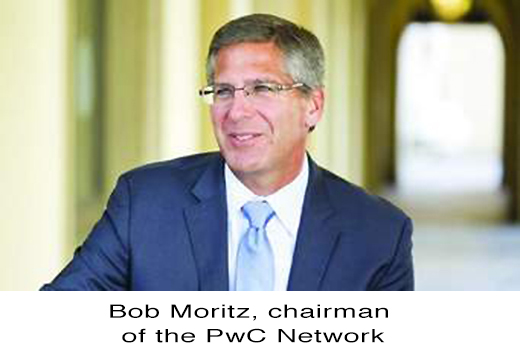Ceos globally ‘more pessimistic’ about growth as trade tension concerns soar
- News Feed
- Friday, 07 February 2020
Chief executives globally are showing record levels of pessimism, with 53 per cent predicting a decline in the rate of economic growth in 2020.
This is up from 29 per cent in 2019 – and only five per cent in 2018.
The result is the highest level of pessimism since the survey started in 2012. By contrast, the number of CEOs projecting a rise in the rate of economic growth dropped from 42 per cent last year to 22 per cent now. These are some of the key findings of PwC's 23rd survey of almost 1,600 CEOs from 83 countries across the world.
Ceo pessimism over global economic growth is particularly significant in North America, Western Europe and the Middle East, with 63, 59 and 57 per cent of ceos from those regions predicting lower global growth in the year ahead.
 "Given the lingering uncertainty over trade tensions, geopolitical issues and the lack of agreement on how to deal with climate change, the drop in confidence in economic growth is not surprising - even if the scale of the change in mood is," said Bob Moritz, chairman of the PwC Network. "These challenges facing the global economy are not new - however the scale of them and the speed at which some of them are escalating is new, and leaders need to find answers.
"Given the lingering uncertainty over trade tensions, geopolitical issues and the lack of agreement on how to deal with climate change, the drop in confidence in economic growth is not surprising - even if the scale of the change in mood is," said Bob Moritz, chairman of the PwC Network. "These challenges facing the global economy are not new - however the scale of them and the speed at which some of them are escalating is new, and leaders need to find answers.
"On a brighter note, while there is record pessimism amongst business leaders, there still are real opportunities out there. With an agile strategy, a sharp focus on the changing expectations of stakeholders and the experience many have built up over the past 10 years in a challenging environment, business leaders can weather an economic downturn and continue to thrive."
Falling confidence
Ceos also are not so positive about their own companies' prospects for the year ahead, with only 27 per cent of ceos saying they are "very confident" in their own organisation's growth over the next 12 months - the lowest level since 2009 and down from 35 per cent last year.
While confidence levels are generally down across the world, there is a wide variation from country to country, with China and India showing the highest levels of confidence among major economies at 45 and 40 per cent respectively, the US at 36 per cent, Canada at 27 per cent, the UK at 26 per cent, Germany at 20 per cent, France 18 per cent, and Japan having the least optimistic ceos, with only 11 per cent very confident of growing revenues in 2020.
When asked about their own revenue growth prospects, the change in ceo sentiment has proven to be an excellent predictor of global economic growth. Analysing ceo forecasts since 2008, the correlation between ceo confidence in their 12-month revenue growth and the actual growth achieved by the global economy has been very close. If the analysis continues to hold, global growth could slow to 2.4 per cent in 2020 below many estimates including the 3.4 per cent October growth prediction from the IMF.
Economic growth worries
In 2019 when asked about the top threats to their organisation's growth prospects, uncertain economic growth ranked outside the top 10 concerns for ceos at number 12. This year it has leapt to third place, just behind trade conflicts - another risk that has risen up the ceos agenda - and the perennial over-regulation, which has again topped the table as the number one threat for ceos.
Ceos are also increasingly concerned about cyber threats and climate change and environmental damage, however despite the increasing number of extreme weather events and the intensity of debate on the issue, the magnitude of other threats continues to overshadow climate change, which still does not make it into the ceos' top 10 threats to growth.
Policing cyberspace
While ceos around the world express clear concerns about the threat of over-regulation, they are also predicting significant regulatory changes in the technology sector. Globally, more than two-thirds of ceos believe that governments will introduce new legislation to regulate the content on both the internet and social media and to break up dominant tech companies. A majority of ceos (51 per cent) also predict that governments will increasingly compel the private sector to financially compensate individuals for the personal data that they collect.
However, ceos are in two minds as to whether governments are striking the right balance in designing privacy regulation between increasing consumer trust and maintaining business competitiveness, with 41 per cent saying it does strike the right balance and 43 per cent saying it doesn't.










